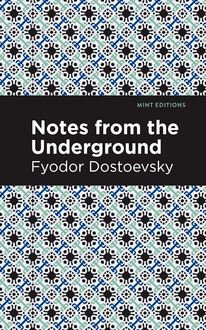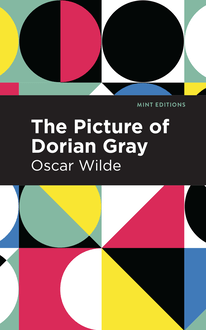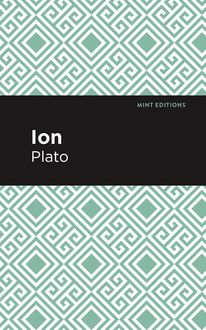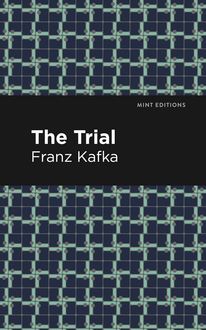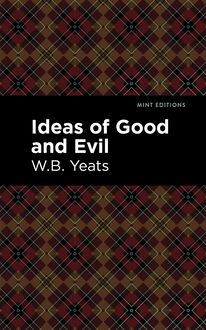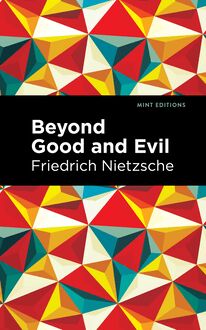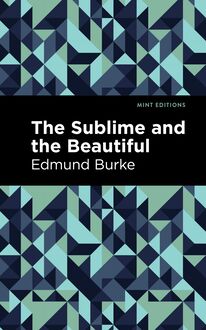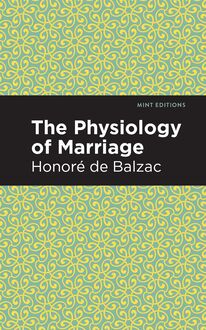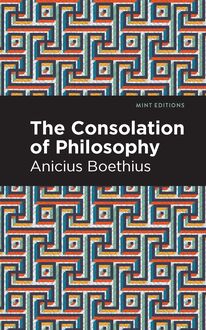-
 Univers
Univers
-
 Ebooks
Ebooks
-
 Livres audio
Livres audio
-
 Presse
Presse
-
 Podcasts
Podcasts
-
 BD
BD
-
 Documents
Documents
-
- Cours
- Révisions
- Ressources pédagogiques
- Sciences de l’éducation
- Manuels scolaires
- Langues
- Travaux de classe
- Annales de BEP
- Etudes supérieures
- Maternelle et primaire
- Fiches de lecture
- Orientation scolaire
- Méthodologie
- Corrigés de devoir
- Annales d’examens et concours
- Annales du bac
- Annales du brevet
- Rapports de stage
La lecture à portée de main
Vous pourrez modifier la taille du texte de cet ouvrage
Découvre YouScribe en t'inscrivant gratuitement
Je m'inscrisDécouvre YouScribe en t'inscrivant gratuitement
Je m'inscrisEn savoir plus
Vous pourrez modifier la taille du texte de cet ouvrage
En savoir plus

Description
Confessions (401) is the work of Saint Augustine, a Roman theologian and bishop responsible for some of the core doctrines of today’s Catholic church. His literary works, including The Confessions, The Enchiridion, and On Christian Doctrine, are commonly viewed as foundational works of Christian theology and Western philosophy. Bishop of Hippo Regius—in modern day Algeria—from 395 to his death in 430, Augustine helped to justify and consolidate the role of Christianity in the Roman Empire and was canonized as a saint for his efforts.
A young man does poorly in school, steals from his neighbor’s orchard, and has a son with a woman to whom he is not married. These are some of the core personal experiences detailed by Augustine in his autobiographical and theological work Confessions, in which he grows from a life of sin to accepting God and the Christian faith. Interspersed with stories of his life and conversion are descriptions and critiques of Neoplatonism, Manichaeism, and astrology, systems of belief and understanding which, for Augustine, fall short of the vision of humanity and salvation offered by Christianity. Throughout this text, Augustine encourages readers—especially those who have led troubled lives—not only to convert to Christianity, but to understand the inherent imperfection of all humanity and to envision the ultimately hopeful message of transformation and forgiveness offered by faith in God. Confessions is at heart a Christian text, but it is also essentially human. Augustine is remembered not just as a saint and Christian leader, but as a figure who precipitated the evolution of Western thought.
Augustine’s Confessions is a foundational work of autobiographical and philosophical writing, influencing such writers as Blaise Pascal, Jean Jacques Rousseau, Thomas Aquinas, Bertrand Russell, and Friedrich Nietzsche. Its personal nature and depth of honesty are considered formal innovations in autobiography and memoir writing, and its meditations on God and human nature have made it an essential text for philosophers and theologians for centuries.
With a beautifully designed cover and professionally typeset manuscript, this edition of Saint Augustine’s Confessions is a classic of autobiography and Christian theology reimagined for modern readers.
Sujets
Informations
| Publié par | Mint Editions |
| Date de parution | 01 décembre 2020 |
| Nombre de lectures | 2 |
| EAN13 | 9781513274621 |
| Langue | English |
| Poids de l'ouvrage | 1 Mo |
Informations légales : prix de location à la page 0,0500€. Cette information est donnée uniquement à titre indicatif conformément à la législation en vigueur.
Extrait
Confessions
Saint Augustine
Confessions was first published in AD 401.
This edition published by Mint Editions 2021.
ISBN 9781513269627 | E-ISBN 9781513274621
Published by Mint Editions®
minteditionbooks.com
Publishing Director: Jennifer Newens
Design & Production: Rachel Lopez Metzger
Translation: E. B. Pusey
Typesetting: Westchester Publishing Services
C ONTENTS Book 1 Book 2 Book 3 Book 4 Book 5 Book 6 Book 7 Book 8 Book 9 Book 10 Book 11 Book 12 Book 13
Book 1
G reat art Thou, O Lord, and greatly to be praised; great is Thy power, and Thy wisdom infinite. And Thee would man praise; man, but a particle of Thy creation; man, that bears about him his mortality, the witness of his sin, the witness that Thou resistest the proud: yet would man praise Thee; he, but a particle of Thy creation. Thou awakest us to delight in Thy praise; for Thou madest us for Thyself, and our heart is restless, until it repose in Thee. Grant me, Lord, to know and understand which is first, to call on Thee or to praise Thee? and, again, to know Thee or to call on Thee? for who can call on Thee, not knowing Thee? for he that knoweth Thee not, may call on Thee as other than Thou art. Or, is it rather, that we call on Thee that we may know Thee? but how shall they call on Him in whom they have not believed? or how shall they believe without a preacher? and they that seek the Lord shall praise Him: for they that seek shall find Him, and they that find shall praise Him. I will seek Thee, Lord, by calling on Thee; and will call on Thee, believing in Thee; for to us hast Thou been preached. My faith, Lord, shall call on Thee, which Thou hast given me, wherewith Thou hast inspired me, through the Incarnation of Thy Son, through the ministry of the Preacher.
And how shall I call upon my God, my God and Lord, since, when I call for Him, I shall be calling Him to myself? and what room is there within me, whither my God can come into me? whither can God come into me, God who made heaven and earth? is there, indeed, O Lord my God, aught in me that can contain Thee? do then heaven and earth, which Thou hast made, and wherein Thou hast made me, contain Thee? or, because nothing which exists could exist without Thee, doth therefore whatever exists contain Thee? Since, then, I too exist, why do I seek that Thou shouldest enter into me, who were not, wert Thou not in me? Why? because I am not gone down in hell, and yet Thou art there also. For if I go down into hell, Thou art there. I could not be then, O my God, could not be at all, wert Thou not in me; or, rather, unless I were in Thee, of whom are all things, by whom are all things, in whom are all things? Even so, Lord, even so. Whither do I call Thee, since I am in Thee? or whence canst Thou enter into me? for whither can I go beyond heaven and earth, that thence my God should come into me, who hath said, I fill the heaven and the earth.
Do the heaven and earth then contain Thee, since Thou fillest them? or dost Thou fill them and yet overflow, since they do not contain Thee? And whither, when the heaven and the earth are filled, pourest Thou forth the remainder of Thyself? or hast Thou no need that aught contain Thee, who containest all things, since what Thou fillest Thou fillest by containing it? for the vessels which Thou fillest uphold Thee not, since, though they were broken, Thou wert not poured out. And when Thou art poured out on us, Thou art not cast down, but Thou upliftest us; Thou art not dissipated, but Thou gatherest us. But Thou who fillest all things, fillest Thou them with Thy whole self? or, since all things cannot contain Thee wholly, do they contain part of Thee? and all at once the same part? or each its own part, the greater more, the smaller less? And is, then one part of Thee greater, another less? or, art Thou wholly every where, while nothing contains Thee wholly?
What art Thou then, my God? what, but the Lord God? For who is Lord but the Lord? or who is God save our God? Most highest, most good, most potent, most omnipotent; most merciful, yet most just; most hidden, yet most present; most beautiful, yet most strong, stable, yet incomprehensible; unchangeable, yet all-changing; never new, never old; all-renewing, and bringing age upon the proud, and they know it not; ever working, ever at rest; still gathering, yet nothing lacking; supporting, filling, and overspreading; creating, nourishing, and maturing; seeking, yet having all things. Thou lovest, without passion; art jealous, without anxiety; repentest, yet grievest not; art angry, yet serene; changest Thy works, Thy purpose unchanged; receivest again what Thou findest, yet didst never lose; never in need, yet rejoicing in gains; never covetous, yet exacting usury. Thou receivest over and above, that Thou mayest owe; and who hath aught that is not Thine? Thou payest debts, owing nothing; remittest debts, losing nothing. And what had I now said, my God, my life, my holy joy? or what saith any man when he speaks of Thee? Yet woe to him that speaketh not, since mute are even the most eloquent.
Oh! that I might repose on Thee! Oh! that Thou wouldest enter into my heart, and inebriate it, that I may forget my ills, and embrace Thee, my sole good! What art Thou to me? In Thy pity, teach me to utter it. Or what am I to Thee that Thou demandest my love, and, if I give it not, art wroth with me, and threatenest me with grievous woes? Is it then a slight woe to love Thee not? Oh! for Thy mercies’ sake, tell me, O Lord my God, what Thou art unto me. Say unto my soul, I am thy salvation. So speak, that I may hear. Behold, Lord, my heart is before Thee; open Thou the ears thereof, and say unto my soul, I am thy salvation. After this voice let me haste, and take hold on Thee. Hide not Thy face from me. Let me die—lest I die—only let me see Thy face.
Narrow is the mansion of my soul; enlarge Thou it, that Thou mayest enter in. It is ruinous; repair Thou it. It has that within which must offend Thine eyes; I confess and know it. But who shall cleanse it? or to whom should I cry, save Thee? Lord, cleanse me from my secret faults, and spare Thy servant from the power of the enemy. I believe, and therefore do I speak. Lord, Thou knowest. Have I not confessed against myself my transgressions unto Thee, and Thou, my God, hast forgiven the iniquity of my heart? I contend not in judgment with Thee, who art the truth; I fear to deceive myself; lest mine iniquity lie unto itself. Therefore I contend not in judgment with Thee; for if Thou, Lord, shouldest mark iniquities, O Lord, who shall abide it?
Yet suffer me to speak unto Thy mercy, me, dust and ashes. Yet suffer me to speak, since I speak to Thy mercy, and not to scornful man. Thou too, perhaps, despisest me, yet wilt Thou return and have compassion upon me. For what would I say, O Lord my God, but that I know not whence I came into this dying life (shall I call it?) or living death. Then immediately did the comforts of Thy compassion take me up, as I heard (for I remember it not) from the parents of my flesh, out of whose substance Thou didst sometime fashion me. Thus there received me the comforts of woman’s milk. For neither my mother nor my nurses stored their own breasts for me; but Thou didst bestow the food of my infancy through them, according to Thine ordinance, whereby Thou distributest Thy riches through the hidden springs of all things. Thou also gavest me to desire no more than Thou gavest; and to my nurses willingly to give me what Thou gavest them. For they, with a heaven-taught affection, willingly gave me what they abounded with from Thee. For this my good from them, was good for them. Nor, indeed, from them was it, but through them; for from Thee, O God, are all good things, and from my God is all my health. This I since learned, Thou, through these Thy gifts, within me and without, proclaiming Thyself unto me. For then I knew but to suck; to repose in what pleased, and cry at what offended my flesh; nothing more.
Afterwards I began to smile; first in sleep, then waking: for so it was told me of myself, and I believed it; for we see the like in other infants, though of myself I remember it not. Thus, little by little, I became conscious where I was; and to have a wish to express my wishes to those who could content them, and I could not; for the wishes were within me, and they without; nor could they by any sense of theirs enter within my spirit. So I flung about at random limbs and voice, making the few signs I could, and such as I could, like, though in truth very little like, what I wished. And when I was not presently obeyed (my wishes being hurtful or unintelligible), then I was indignant with my elders for not submitting to me, with those owing me no service, for not serving me; and avenged myself on them by tears. Such have I learnt infants to be from observing them; and that I was myself such, they, all unconscious, have shown me better than my nurses who knew it.
And, lo! my infancy died long since, and I live. But Thou, Lord, who for ever livest, and in whom nothing dies: for before the foundation of the worlds, and before all that can be called “before,” Thou art, and art God and Lord of all which Thou hast created: in Thee abide, fixed for ever, the first causes of all things unabiding; and of all things changeable, the springs abide in Thee unchangeable: and in Thee live the eternal reasons of all things unreasoning and temporal. Say, Lord, to me, Thy suppliant; say, all-pitying, to me, Thy pitiable one; say, did my infancy succeed another age of mine that died before it? was it that which I spent within my mother’s womb? for of that I have heard somewhat, and have myself seen women with child? and what before that life again, O God my joy, was I any where or any body? For this have I none to tell me, neither father nor mother, nor experience of others, nor mine own memory. Dost Thou mock me for asking this, and b
-
 Univers
Univers
-
 Ebooks
Ebooks
-
 Livres audio
Livres audio
-
 Presse
Presse
-
 Podcasts
Podcasts
-
 BD
BD
-
 Documents
Documents
-
Jeunesse
-
Littérature
-
Ressources professionnelles
-
Santé et bien-être
-
Savoirs
-
Education
-
Loisirs et hobbies
-
Art, musique et cinéma
-
Actualité et débat de société
-
Jeunesse
-
Littérature
-
Ressources professionnelles
-
Santé et bien-être
-
Savoirs
-
Education
-
Loisirs et hobbies
-
Art, musique et cinéma
-
Actualité et débat de société
-
Actualités
-
Lifestyle
-
Presse jeunesse
-
Presse professionnelle
-
Pratique
-
Presse sportive
-
Presse internationale
-
Culture & Médias
-
Action et Aventures
-
Science-fiction et Fantasy
-
Société
-
Jeunesse
-
Littérature
-
Ressources professionnelles
-
Santé et bien-être
-
Savoirs
-
Education
-
Loisirs et hobbies
-
Art, musique et cinéma
-
Actualité et débat de société
- Cours
- Révisions
- Ressources pédagogiques
- Sciences de l’éducation
- Manuels scolaires
- Langues
- Travaux de classe
- Annales de BEP
- Etudes supérieures
- Maternelle et primaire
- Fiches de lecture
- Orientation scolaire
- Méthodologie
- Corrigés de devoir
- Annales d’examens et concours
- Annales du bac
- Annales du brevet
- Rapports de stage
